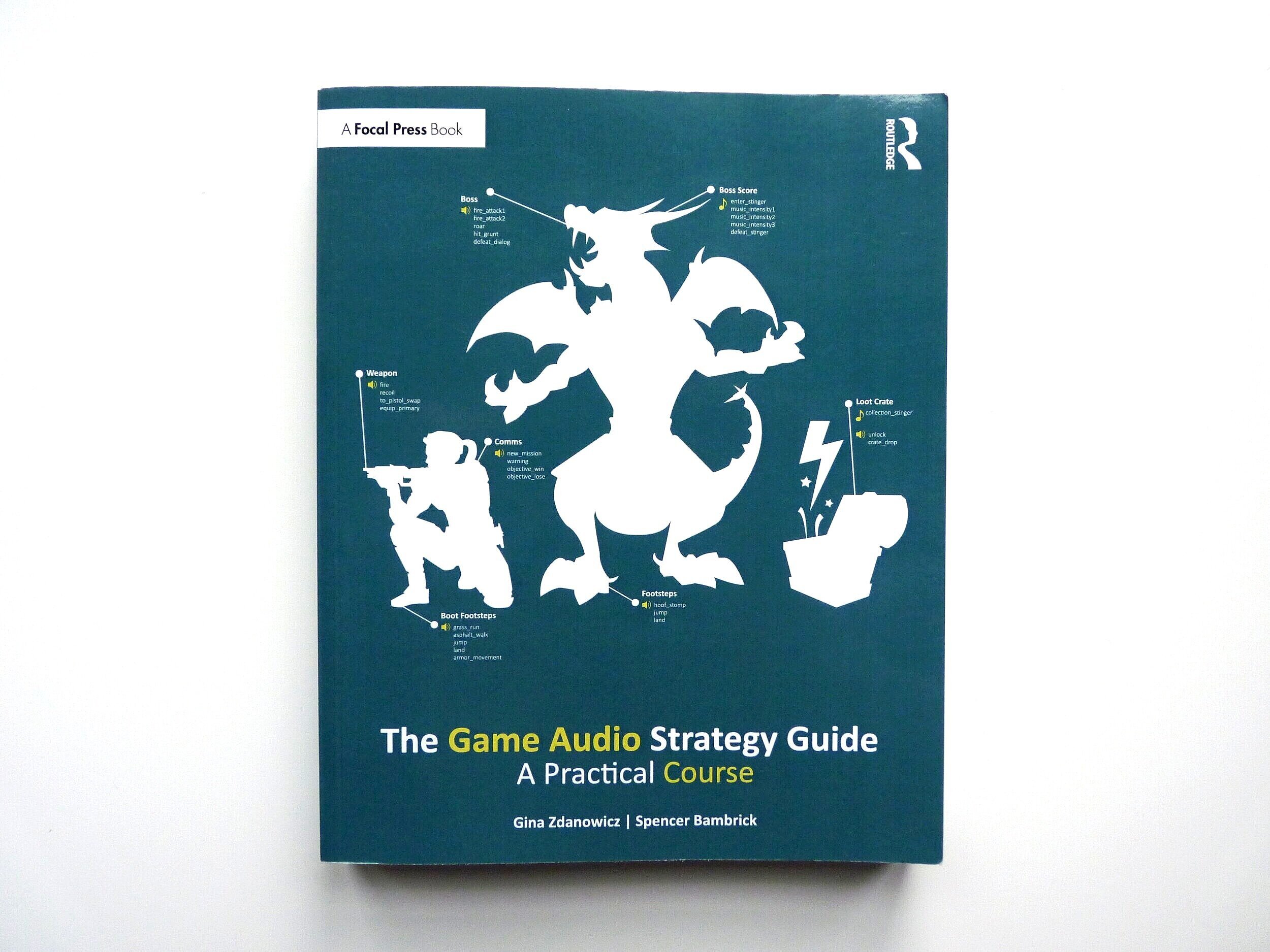“Take no heed of her...she reads a lot of books”
This post is about the books I found most helpful in launching my career in game audio. They helped take me from zero (a total beginner) to getting hired.
For context: my career change is from IT/logistics to audio design. I've been learning game audio for 1.5 years (50% part time, 50% full time), including studying an MA in game sound design which I’m about halfway through. I had very little sound design experience prior to the course, though I had made music in the past so I knew how to use a DAW. That said, I was really out of practice with a lot of catching up to do. Added to that, I had a music tech qualification so knew about signal flow, microphones etc.
So….to the books!
'The Game Audio Strategy Guide' by Gina Zdanowicz and Spencer Bambrick
This has been my go-to game audio book during my studies (both for practical and theoretical work). It's comprehensive, with many contributors, covering sound design, music, implementation and the game audio business. There is also a companion website with videos and further resources, and even a Twitter account linking to more resources & jobs. If you're thinking about getting into game audio and want one solid book to start with, this is definitely the one! I was looking for a book like this before it existed (back in 2016). If I had it then, my progress would definitely have been sped up.'Quit Aspiring' by Adam T. Croft
This book has been most helpful in figuring out the steps I needed to take to get a job. It talks about networking, portfolios, projects, CVs, job interviews, but also about software. It helped me to choose what to learn and made me realise that I shouldn't attempt to learn everything, because this isn’t a good use of time (for example, I’ve never used Unreal, though I used Unity enough to get a basic idea of what it does). It also reassured me that I didn't need to become a superstar sound designer to get a job: ‘good enough’ is good enough! And I will inevitably get better with time.‘The Power of Full Engagement’ by Jim Loehr and Tony Schwartz
This is a book about productivity Akash Thakkar recommended in a video interview with Adam Croft, included with the previous book. The gist is that you should approach work like interval training - short bursts of intense work followed by recovery. Having done interval training of the fitness type (ouch, by the way!) I found it easy to apply it to my work practice. I also related to the analogy of training my 'work muscle'. Now I work less and achieve more when I work, as I fully concentrate. ‘Steal Like an Artist’ by Austin Kleon
This is a quick read about creativity. This book urged me to be very selective about the work that I do and focus only on the projects (or aspects of projects) that I really like, and reject or give less attention to those I’m less taken with. Similarly, I focused on learning from people who do cool things that interest and resonate with me. This may seem obvious, but it took me some time to learn to trust my intuition.
The book also touched upon digital art and the challenges of feeling creative when working at a computer all day. I struggle with this because I don't have much space or equipment (I would surely find a rack of modular synths inspiring!). My way around this has been to record something for every project, just to use my hands. I also find it helpful to collaborate with others.This combination of books reflects somewhat how I spent my time training for a job:
25% the craft: sound design & implementation
25% business: networking, applying for jobs, presenting my work
25% research, planning and organising work
25% creativity & fun: workshops, playing games, side projects
Looking at how I used my time, I did relatively little sound design vs everything else. However, 'everything else' positively influenced and guided my sound design development by making me more aware of my strengths, weaknesses, interests and priorities. It feels like 'getting a job in game audio' is a job in itself, which is different to an actual in-house sound design position, and probably resembles more being a freelancer. I'm about to find out very soon!
“Most of what makes a book 'good' is that we are reading it at the right moment for us”
― Alain de Botton
If you would like to continue the conversation, do join the Game Dev Community Discord to meet other like-minded sound designers, some of whom are also freshly hired.
If you’re interested in the topic of getting a job more broadly, I also recommend this panel discussion by Into Games Careers Fair 2021 about getting jobs in Game Audio (01.31.21).




